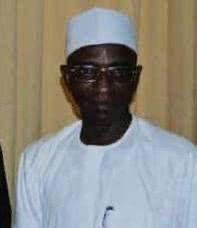Advertising Leaders Responsibly: Avoiding unnecessary pressure on citizens, by Hassan Ahmad
In times of deep national strain—marked by insecurity, economic hardship, and social tension—how we present our political leaders matters just as much as their actions. Nigeria today is walking a delicate path. Ordinary citizens are already burdened by rising food prices, unemployment, insecurity, and eroding trust in governance.
To further subject them to excessive, celebratory advertising of political leaders is to risk alienation, anger, and instability.
The lessons of history and comparative politics are clear. The recent upheaval in Nepal offers a stark warning. There, an economic downturn and governance failures were worsened by the perception that politicians remained detached from the struggles of ordinary people—spending public funds on image-building while citizens queued for essentials. That disconnect contributed to protests and unrest that shook their political order.
Nigeria, with its own complex ethnic, religious, and economic challenges, cannot afford to fuel similar resentment through tone-deaf messaging.
We must not repeat that mistake. Political advertising is not inherently wrong—it can inform, inspire, and unite when done with humility and purpose. But the tone, timing, and cost must reflect our current realities.
Several governors and even federal leaders have expressed devastation over the security crises tearing through their states—some reportedly in tears as they watched their communities displaced, farmers abandoned, and children orphaned by violence. Yet they are often powerless to control security operations directly, limited instead to providing logistics. For the masses, such honest acknowledgment of their pain earns more respect than any glossy billboard ever could.
READ ALSO: Banditry in the Northwest: A call for political will and urgent action, by Hassan Ahmad
1. Prioritise Substance Over Showmanship
Leaders should let their work and results speak louder than billboards. Nigerians are perceptive; they recognise genuine effort even when progress is slow. A modest announcement of a completed rural water project or a functioning hospital resonates far more deeply than a media spectacle touting promises yet to be fulfilled. Overblown publicity breeds skepticism, and skepticism erodes trust—the very trust our democracy needs to survive.
2. Spend Public Funds Prudently
Lavish campaigns in a time of hunger and joblessness insult the very people leaders claim to serve. The rising cost of food staples, fuel, and transportation has already stretched household budgets to the breaking point. When government convoys expand and giant posters of smiling politicians blanket cities, citizens rightly ask: whose priorities are being served? Private supporters may sponsor promotions, but even then, sensitivity to public mood is essential. Transparency is also key—leaders should disclose when advertising is privately funded to avoid perceptions of misusing public resources.
3. Use Messaging to Heal and Unite
Advertising can play a constructive role if it emphasises unity, shared sacrifice, and honest communication about challenges. Campaigns can promote peace across ethnic and religious divides, celebrate the resilience of ordinary Nigerians, and call for collective responsibility in overcoming insecurity and economic hardship. What should be avoided is self-glorification that pits one group against another or trivialises citizens’ suffering. Nigeria’s diversity can be a source of strength, but only if leaders present themselves as servants of all, not champions of a narrow base.
4. Engage Citizens Directly
Billboards cannot answer questions, and jingles cannot soothe the frustrations of a farmer who cannot safely reach his fields or a trader whose shop is shuttered due to economic decline. Leaders must go beyond image-building to listen. Town hall meetings, transparent progress reports, and open dialogue are far more effective tools for building credibility. Even difficult truths, when spoken with humility and sincerity, earn more goodwill than empty praise. Nigerians are resilient and forgiving when treated with respect.
READ ALSO: Reply to the Chairman, Presidential Fiscal Policy & Tax Reforms Committee, by Hassan Ahmad
The current climate makes responsible communication even more urgent. Banditry continues to plague the Northwest, while the Northeast still recovers from years of insurgency. In the South, tensions simmer over resource control and political representation. The federal government must avoid pushing citizens to the point of despair. Over-celebration of leaders in the midst of these realities risks replicating the dangerous disconnect seen elsewhere—where public anger, once ignited, becomes difficult to contain.
Furthermore, young Nigerians—many educated yet unemployed—are increasingly vocal on social media, where traditional political messaging is often scrutinised and ridiculed. The #EndSARS protests of 2020 revealed how quickly public dissatisfaction can mobilise. Leaders who invest in flashy advertising rather than meaningful engagement may find themselves out of touch with a generation unwilling to accept business as usual.
Nigeria’s journey to stability and prosperity requires maturity, restraint, and empathy from those in power. Advertising, when necessary, should be simple, honest, and directed toward national unity and solutions, not vanity. The people’s patience is not infinite, and the federal government especially must recognise that excessive pressure on already burdened citizens could provoke reactions that destabilise our fragile democracy.
The image of Nepal’s protests should remind us that even proud nations can be shaken when leaders prioritise optics over substance. As Nigerians, we must demand accountability—not only in spending and policy but also in how our leaders communicate. A banner that says “We are rebuilding our schools” means little if classrooms remain roofless. A jingle praising economic recovery rings hollow when markets are half-empty. Citizens do not require perfection from their leaders, but they do require honesty, empathy, and visible effort.
In this critical moment, restraint in political advertising is not weakness—it is wisdom. It signals that leaders understand the gravity of our challenges and respect the intelligence and dignity of the people. Responsible communication will ease pressure on the citizens, preserve stability, and prove that our leaders value the people over their own image. Nigeria’s future depends not only on what our leaders achieve but on how they walk with the people through hardship toward hope.
Follow the Neptune Prime channel on WhatsApp:
Do you have breaking news, interview request, opinion, suggestion, or want your event covered? Email us at neptuneprime2233@gmail.com





